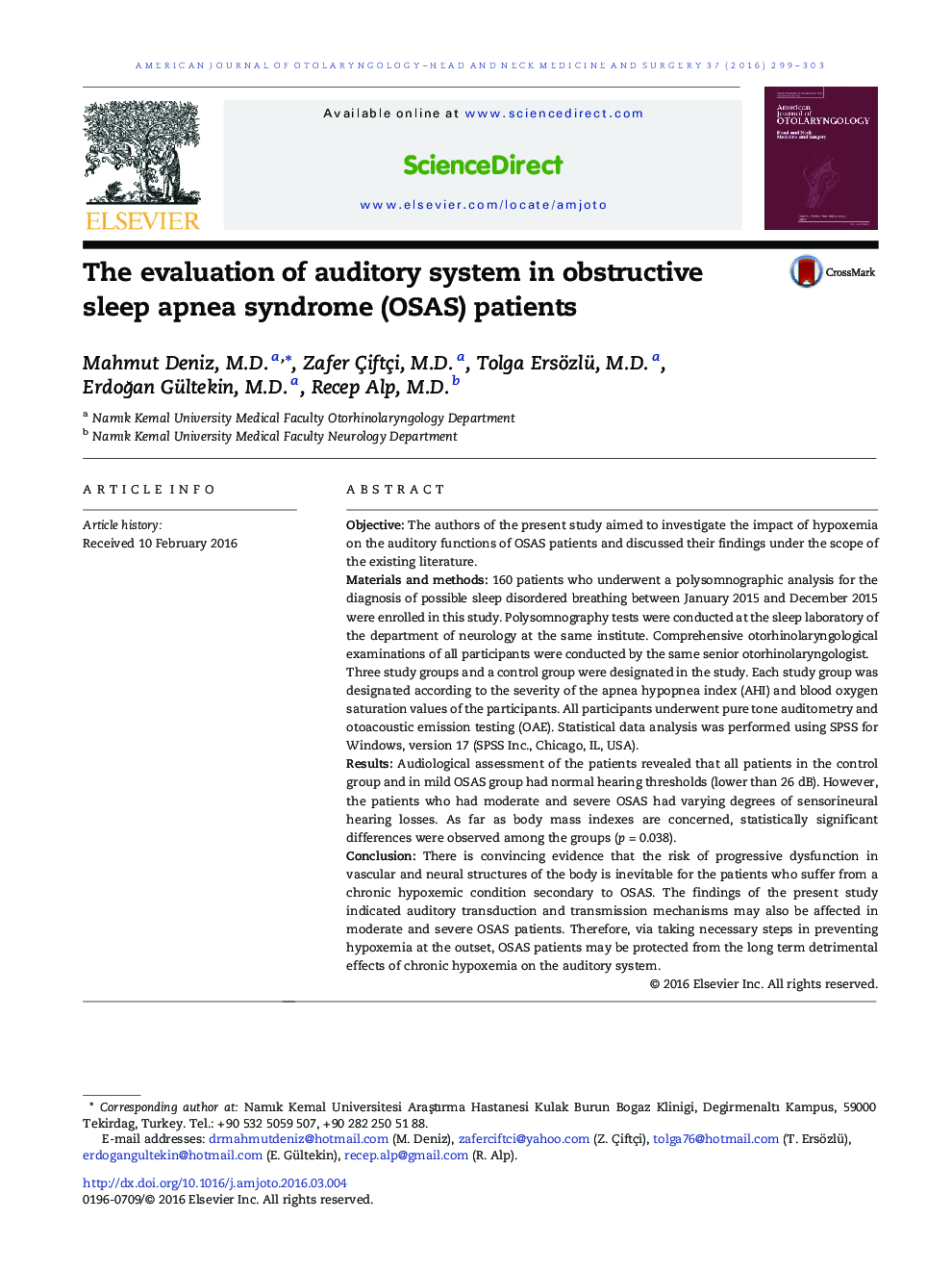| Article ID | Journal | Published Year | Pages | File Type |
|---|---|---|---|---|
| 4102912 | American Journal of Otolaryngology | 2016 | 5 Pages |
ObjectiveThe authors of the present study aimed to investigate the impact of hypoxemia on the auditory functions of OSAS patients and discussed their findings under the scope of the existing literature.Materials and methods160 patients who underwent a polysomnographic analysis for the diagnosis of possible sleep disordered breathing between January 2015 and December 2015 were enrolled in this study. Polysomnography tests were conducted at the sleep laboratory of the department of neurology at the same institute. Comprehensive otorhinolaryngological examinations of all participants were conducted by the same senior otorhinolaryngologist.Three study groups and a control group were designated in the study. Each study group was designated according to the severity of the apnea hypopnea index (AHI) and blood oxygen saturation values of the participants. All participants underwent pure tone auditometry and otoacoustic emission testing (OAE). Statistical data analysis was performed using SPSS for Windows, version 17 (SPSS Inc., Chicago, IL, USA).ResultsAudiological assessment of the patients revealed that all patients in the control group and in mild OSAS group had normal hearing thresholds (lower than 26 dB). However, the patients who had moderate and severe OSAS had varying degrees of sensorineural hearing losses. As far as body mass indexes are concerned, statistically significant differences were observed among the groups (p = 0.038).ConclusionThere is convincing evidence that the risk of progressive dysfunction in vascular and neural structures of the body is inevitable for the patients who suffer from a chronic hypoxemic condition secondary to OSAS. The findings of the present study indicated auditory transduction and transmission mechanisms may also be affected in moderate and severe OSAS patients. Therefore, via taking necessary steps in preventing hypoxemia at the outset, OSAS patients may be protected from the long term detrimental effects of chronic hypoxemia on the auditory system.
